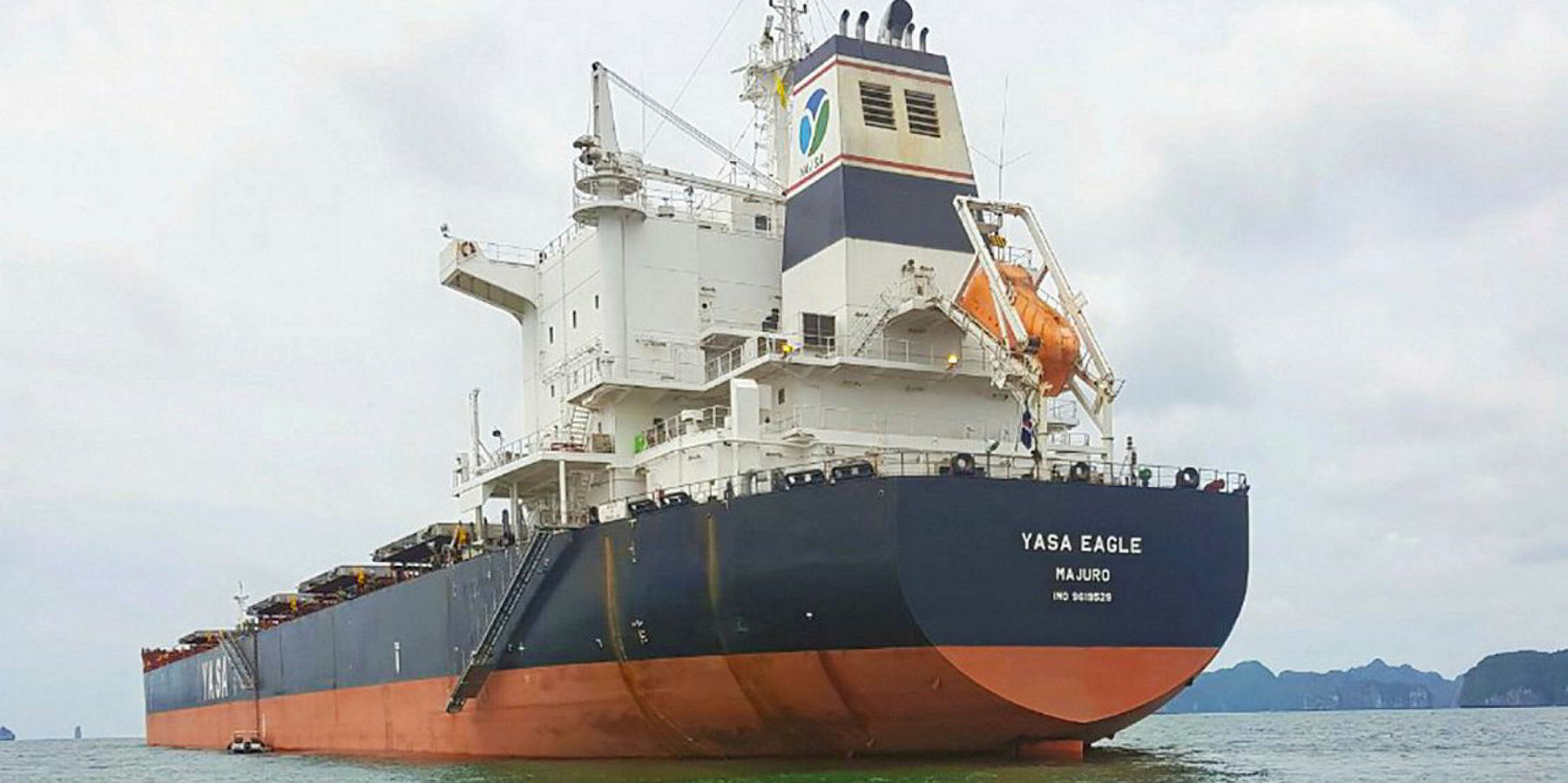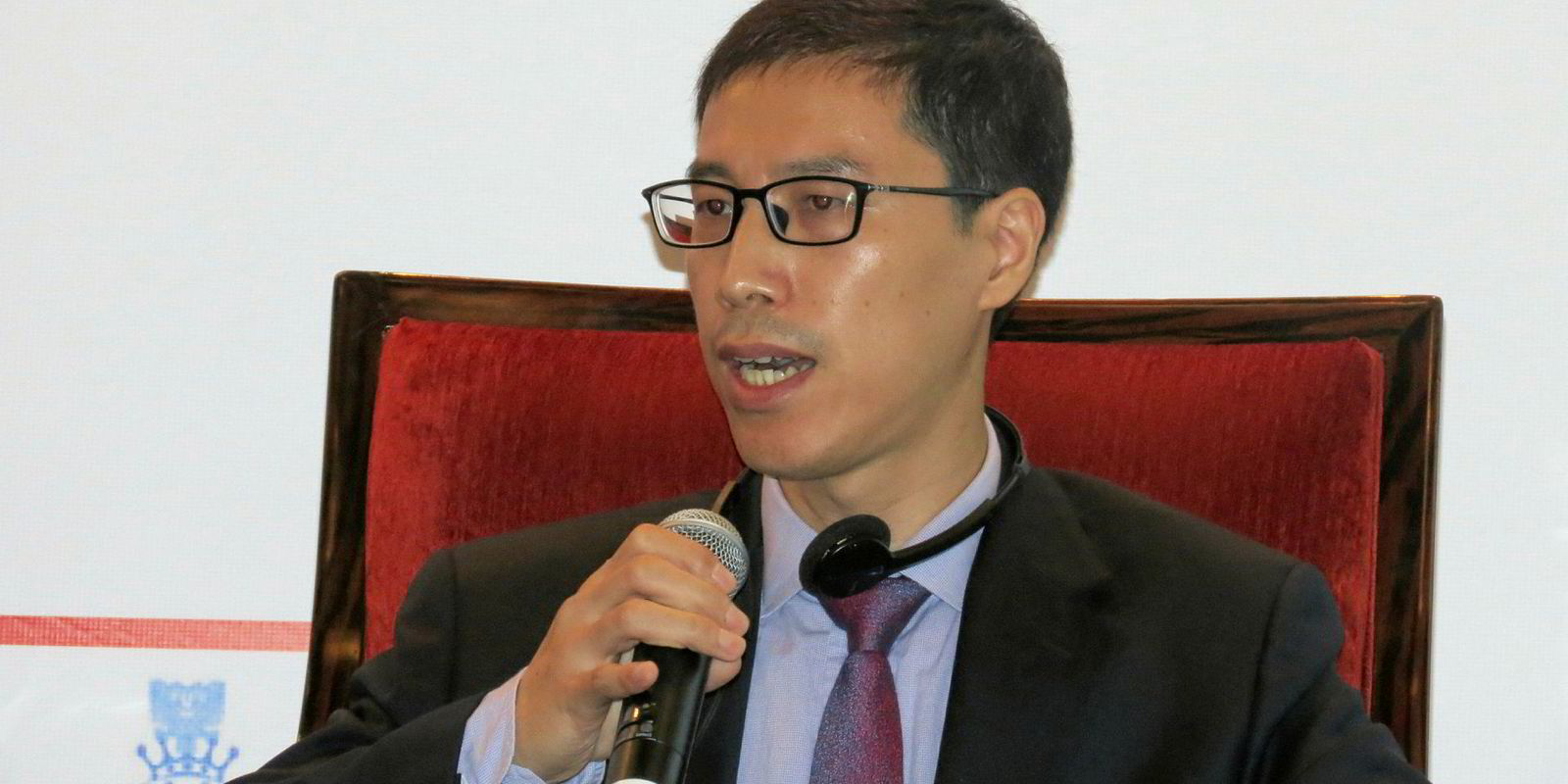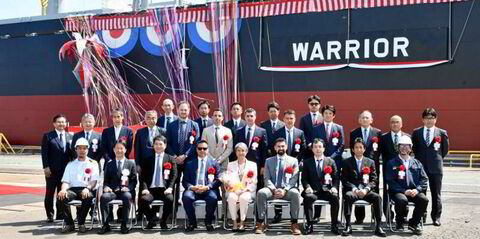A kamsarmax arrested last year in Qingdao has become the subject of a jurisdictional battle between Chinese maritime courts and international arbitration panels.
The dispute comes at a time when China is becoming increasingly assertive about its international jurisdictional rights in trade and maritime law.
Turkey’s Yasa Shipping put up $2m in security over claims of damage to a cargo of soybeans after its 81,500-dwt Yasa Eagle (built 2012) called in Qingdao in June 2017. The security was in the form of a letter of undertaking believed to be from protection and indemnity club Gard.
The cargo had been shipped from Paranagua, Brazil, the previous month by Cargill Agricola. The Chinese receiver, crusher owner Shandong Sanwei Oil & Fat Group, discovered mildew and heat damage at discharge.
Sanwei successfully argued that the matter should be heard by the Qingdao Maritime Court.
But lawyers for Yasa and their insurers said that although Qingdao was the proper venue for arrest, the Sanwei proceeding in the local court ignored a dispute resolution clause calling for the underlying dispute to be resolved through London arbitration following English law.
Chinese insurer steps in
Yasa also challenged the decision to allow Sanwei’s Chinese insurer to take over the claim in a procedure known as subrogation. In February, while the parties were fighting the jurisdictional issue, the Qingdao Maritime Court allowed China Life Property & Casualty Insurance to step in as plaintiff after Sanwei claimed the insurer had paid off a portion of Sanwei’s damages claim.
Yasa’s lawyers said they have never seen proof of the payment that makes the change of party possible.

Wang Hongyu of Heng Xin Law Office, Yasa’s Shanghai lawyers, told a US court in a related proceeding that the insurer sought to step in “to avoid the clear terms of the bills of lading”, which contained the London arbitration clause.
In a document filed with the Southern District of New York federal court, Wang says he will be raising “issues of fundamental fairness” over “the legal manoeuvering of Sanwei and China Life” in the Chinese court fight, which continues.
Wang and Yasa’s New York lawyers at Holland & Knight are asking the federal court to allow them to subpoena wire transfer records from 17 US banks that will show whether China Life made the alleged payments on which the subrogation is based.
That could lend support to Yasa’s theory that “this is a thinly-veiled attempt to have the matter heard in the sympathetic courts of China as opposed to arbitration in London”, wrote Holland & Knight partner Christopher Nolan.
A legal double bind prevents Yasa from obtaining the information it needs directly from its adversaries in the Chinese proceeding.

Wang said that under Chinese procedural rules, Yasa is allowed to produce evidence on whether insurance indemnity was paid, in order to cast doubt on whether the subrogation claim holds up. Paradoxically, however, the very act of getting its evidence would destroy its case against Chinese jurisdiction.
“Yasa cannot raise this alleged subrogation document issue with China Life or Sanwei during the jurisdiction challenge process because such actions will be construed as submission to jurisdiction of the Chinese courts,” Wang wrote.
Representatives of Sanwei could not be reached before TradeWinds went to press.
At a national policy level, China is increasingly assertive about its jurisdiction. It is in the process of setting up courts in Xian and Shenzhen that are meant to settle disputes arising in connection with Premier Xi Jinping’s Belt and Road initiative of global infrastructure finance and construction.
The Xian court would handle disputes in connection with the overland arm of Belt and Road, while Shenzhen would be devoted to the so-called Maritime Silk Road.
The names of eight justices to serve on the two bodies were announced this week, and seven of them have some foreign legal training.
It remains unclear what view Beijing takes on contractually defined choices of law and jurisdiction, or whether these would be honoured if claimants bring commercial contract disputes before the Belt and Road courts. At the state-to-state level, some observers expect China to assert unilateral authority despite the existence of multilateral bodies for arbitration and mediation.





